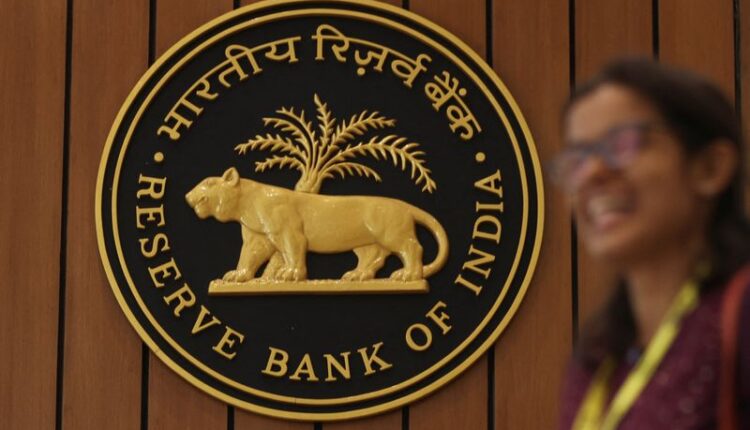India cenbank steps in to support growth with more liquidity; keeps key rate steady
By Swati Bhat and Sudipto Ganguly
MUMBAI (Reuters) -The Reserve Bank of India (NS:BOI) (RBI) kept its key interest rate unchanged on Friday but cut the cash reserve ratio (CRR) that banks are required to hold, effectively easing monetary conditions as economic growth slows.
India’s GDP growth rate fell unexpectedly to 5.4% in the July-September quarter, its slowest pace in seven quarters, while inflation is quickening again and the rupee has fallen to record lows, limiting the RBI’s room to manoeuvre heading into what looks to be a globally turbulent new year.
To balance the conflicting pressures on the economy, the central bank eased liquidity conditions, while announcing steps to draw more foreign currency deposits, but kept its benchmark policy rate unchanged for now.
The CRR was cut by 50 basis points to 4%, effective in two tranches on Dec.14 and Dec. 28. The cut was the first since March 2020.
The move will infuse 1.16 trillion rupees ($13.72 billion) into the banking system and bring down market interest rates.
The benchmark repo rate, however, was left unchanged at 6.50% for an eleventh straight policy meeting.
Four of six members of the monetary policy committee voted to keep rates unchanged. The committee voted unanimously to keep its policy stance at “neutral”.
Price stability is important to people because it impacts their purchasing power, said RBI Governor Shaktikanta Das, adding that ensuring “durable” price stability is critical to ensuring high growth in the economy.
Policy support may be needed if the growth slowdown “lingers”, Das said.
For now, the central bank sees economic growth as resilient, Das said. Not withstanding the recent aberrations in growth and inflation, domestic conditions are on a balanced path, he said.
“The CRR cut to augment liquidity is likely to impact the market interest rate,” said Devendra Kumar Pant, chief economist at India Ratings and Research.
Overnight interbank rates have been trending above the policy repo rate of 6.5% as liquidity has tightened.
The growth outlook has weakened but inflation is the biggest risk for any economy, said Pant, adding that a rate cut in February is still not certain and will depend on data.
India’s benchmark 10-year bond yield was up 3 basis points to 6.7130% after the announcement, while the rupee rose 0.1% to 84.6225 per U.S. dollar from 84.6600. The benchmark equity indexes were marginally higher, after dipping before the policy decision.
LOWER GROWTH; HIGHER INFLATION
The central bank also raised its inflation forecast for the year and cut its economic growth forecast.
It lowered its growth forecast for the year ending March 2025 to 6.6%, from its earlier forecast of 7.2%, following the weaker-than-expected print for the second quarter.
The GDP slowdown bottomed out in the July-September quarter and activity has seen a pick-up in subsequent months led by festival spending and strong agricultural output following a good monsoon, Das said.
The central bank sees average retail inflation in the current financial year at 4.8% compared to 4.5% previously.
Annual retail inflation rose to 6.21% in October, breaching the central bank’s tolerance band for the first time in more than a year.
Food inflation pressures are likely to linger in the October-December quarter, easing only early next year as the impact of a good monsoon is seen on agricultural output, Das said.
BOOSTING THE RUPEE
To fight pressure on the Indian rupee, which has fallen to all-time lows amid a stronger dollar and outflows from the equity market in October and November, the central bank raised the interest rate ceiling for banks for foreign currency non-resident (FCNR-B) deposits.
FCNR-B allows non-resident Indians to hold term deposits in India in foreign currencies.
($1 = 84.5500 Indian rupees)

